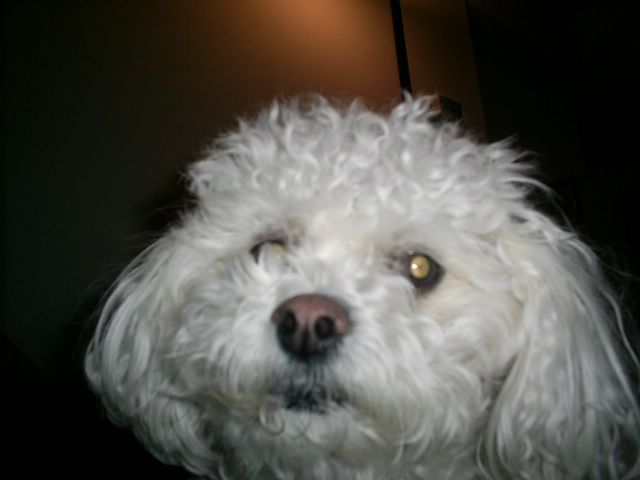What I pulled off the shelf in 2/06
Ilium by Dan Simmons
This is the first of a new series by the author the Hyperion series. Far in the future, the Trojan War isplayed out on the plains of Mars in the shadow ofOlympos Mons. Thomas Hockenberry is a 21st century professor who is one of several scholars brought fromthe dead by the Olympian gods to observe and recordthe war. Meanwhile, a number of sentient machines from the Jovian satellites embark on a mission of their ownand a group of humans from Earth embark on a missionto find the post humans. Are these the "real" Olympian gods? And, if so, whyare they recreating the events of the Iliad on Mars? Where did the post-humans go? And what will happen when some of the principals decide to go "off script"and take the war in a direction that Homer never imagined?
Some of those questions are answered in this volume. Others appear to be saved for the sequel, Olympos,which is already out in hardback. Fans of Simmons' Hyperion novels will enjoy this. Like that series, Ilium touches on role of artificial intelligence inour society and bringing people back from the dead. Also like the Hyperion books, it's peppered with numerous literally references. This is a fast-paced adventure story with complex, often conflicted characterizations. I'd highly recommend to anyone.
Signal to Noise
This 1998 book by Eric Nylund has been sitting on myshelf for quite some time, so I decided to finallypick it up. Jack Potter is an expert on computer cryptography innear-future world defined by paranoina and cutthroatcompetition. Just as Jack and his friends are settingup their own business, Jack is contacted by an alienbeing who is willing to trade some advanced knowledgewith Jack.
Soon, Jack's business is producing a virus that notonly cures cancer, but seems to make people smarter. But Jack soon finds himself caught in a struggle notonly with various governments on Earth, but also withhis own friends and business. He even realizes that this alien trading partner isn't what he thought itwas.
Is there anyone Jack can trust?
This is a dark dystopian look at the future and is not for those who like the happy uptopian futures of theGene Roddenberry mold. Still, it's a tightly wovenplot involving difficult moral choices. Jack wants todo the right thing, but often finds himself forced tomake compromising choices in order to survive. Few novels pull off a character like this and make him still be sympathetic to the reader the way that this one does.
War of the Gods
This one of the last novels published by the late Poul Anderson. Based on the legend of the Danish King Hadding, Anderson draws heavily on Norse mythology topaint a vivid picture of life in the iron age. Focusing on the story of the ware between the Aesirand the Vanir, Anderson writes in a style the evokesmany epic tales of the past. Hadding is the son of the king, but was raised by the giants. The book follows his rise to power and his struggles to maintain peace in a violent world. The style is similar to some of Anderson's earlier"historical fantasies" such as The Broken Sword and The King of Ys. If you like your fantasy with a touchof realism and historical accuracy, then this is agood book. Anderson was one of my favorite writers and reading this was a bittersweet experience for me as it marks the end of a prolific career of one of the last great Grandmasters of his generation.
The Burning Heart of Night
Imagine a world plagued by a deadly disease caused bya parasite. The only way to control the disease is toslaughter members of another sentient species in orderto harvest their natural resistance to the parasite. Could you do it? That's the premise of this 2002 Ivan Cat novel. On a colony founded by members of a puritanical religioussect, the colonists have enslaved the Khafra, the native species of the planet New Ascension. The Khafra serve as both slaves and as a source protection from the disease. But Jenette Tesla, the daughter of thecolony's leader, hopes to find another way to save her colony and end the sacrifice of the Khafra.
Throwing a monkey wrench into this colony, is Lindal Karr, pilot of the colny ship that has crashed onto New Ascension. Jenette hopes that the supply of"fugue", a strange material that slows down time, on the ship could be the key to ending the suffering ofthe Khafra. But will the other colonists and the feral Khafra (those that have resisted enslavement) let them? A deep exploration of how disease and crises can affect social mores and the lengths people will go to in order to survive, this novel, like Signal to Noise,is not for those that like their futures bright and shiny. I would have liked a more deeper explanation on how the fugue works or the culture that produced Karr's unique training. It is, however, a solid science fiction story that challenges the reader to hope for the survival of a people who may not even deserve it.


0 Comments:
Post a Comment
<< Home